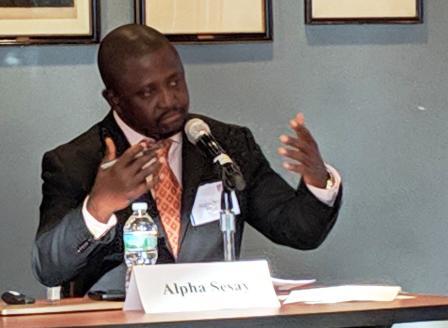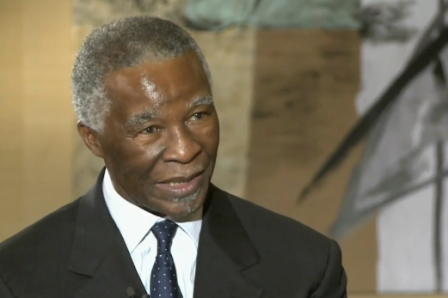2nd international war crimes conference IALS London March 2011
2nd Biennial War Crimes Conference – Justice? – Whose Justice? 3-5 March 2011: Institute of Advanced Legal Studies London.
Speakers include Gender/post-conflict specialist Lesley Abdela; Jose Pablo Baraybar (EPAF, Peru); David Fraser (Nottingham U); Cissa Wa Numbe (UNA-DCR); Silke Studzinsky (ECCC, Cambodia); Szymon Janczarek (ECHR Poland); Adrawa Lawrence Dulu (Development Peace); Kris Wetherholt (HMF); Michael Kandiah (CCBH@KCL); Shirley Randell (Kigali U, Rwanda: www.shirleyrandell.com.au)
Lesley Abdela (http://en.wikipedia.org/wiki/Lesley_abdela) addresses whether UN Security Council resolutions 1820 and 1888 are sufficient instruments to counter the horse-trading of justice where impunity is on the negotiating table over crimes committed against women and girls in conflict zones like Nepal, Aceh, Timor Leste, or Darfur, Liberia, Somalia, Sierra Leone, Uganda. Lesley Abdela was Senior Gender Adviser to the UN OCHA Chief Coordinator in Nepal 2007/2008.
(Lesley Abdela will be in Sierra Leone November 29-December 4 2010 care of the British Council Freetown)
The conference will explore themes surrounding judicial roles and responses to war crimes (broadly construed)– past, present and future – and also responses to such initiatives from victims/victors, interested agencies and commentators, including the UN, NATO and various local, regional and international NGOs. Does history indicate prosecutions should simply expose/reveal or must they always punish? What is the role of mediation in the interests of revelations of ‘truth’, and what impact can strategies for reconciliation have?
- Developments in areas like forensic anthropology now enable much more information about war crimes to be presented publicly, including identities of victims and perpetrators. How should such witness testimony be managed within the legal process? Should it stop short of prosecution?
- What of the legal tensions surrounding prosecutions for acts which, in terms of an indigenous legal system were in fact lawful – what is the ethical or moral basis for war crimes prosecutions on that basis?
- The chronological dimensions present another set of dilemmas, practical and moral. Should there be an internationally-accepted statute of limitations? Prosecutions for WW2 war crimes are still ongoing, if now rare; when does it (ever?) cease to be practical or useful, in terms of successful post-conflict reconstruction to pursue war crimes prosecutions? Twenty, thirty, fifty years?
Particularly welcome are suggestions for round tables which address ways in which a fruitful dialogue can take place between academics, practitioners and professionals including those working within the Media in these fields.
A focus will be on the International Criminal Court, with its recent extraordinarily proactive stance towards the management of war crimes’ prosecutions and issue of an international arrest warrant against a Head of State. Numbers of States are not signatories to the ICC yet the Court’s actions indicate it is taking on the role of conscience of the world. Does the future of war crime prosecutions lie solely, or mainly, with the ICC? Is this acceptable, given the lack of universal global support for the ICC?
As this is the second Biennial Conference, we are also interested in hearing reports from delegates at the first Conference of developments with which they have been associated – hopeful or not – as well as considering regions not yet covered in our debates.
Call For Papers
Proposals are invited for papers examining a range of related issues (practical, theoretical and experience-based) of around 350 words. Abstracts/enquiries to warcrimesials@gmail or Belinda.Crothers@sas.ac.uk. To discuss the conference, contact l.r.charlesworth@ljmu.ac.uk or judith.rowbotham@ntu.ac.uk. Details, including the programme and the booking form will be available on the SOLON, IALS, and CCBH websites: http://www.perc.plymouth.ac.uk/solon/; http://ials.sas.ac.uk/; http://icbh.ac.uk/
Suggested themes include:
- Historical and contemporary considerations of ‘forgetting’ and memory in war crimes.
- The implications of the use of national or international courts and tribunals and the problems of jurisdiction.
- The role of the media in portraying war crimes, and the rhetoric used.
- Witness perspectives: protection, access to courts; financial support; are their voices heard?
- Legal issues, eg: the nature of evidence in war crimes trials; questions of jurisdiction; benefits and limitations of doctrinal approaches; strategies for harmonising legal definitions; should grave national or international crimes be time-limited?
- Witness perspectives: protection, access to courts; financial support; are their voices heard?
- Studies of individual cases and trials. Do prosecutions serve justice?
- Theory and war crimes, legal and philosophical perspectives, law and ethics, law and culture, law and politics.
An initiative between SOLON, the Institute for Advanced Legal Studies University of London and the CCBH, King’s College London
Conference enquiries l.r.charlesworth@ljmu.ac.uk or judith.rowbotham@ntu.ac.uk
Conference language English
Stay with Sierra Express Media, for your trusted place in news!
© 2010, https:. All rights reserved.





